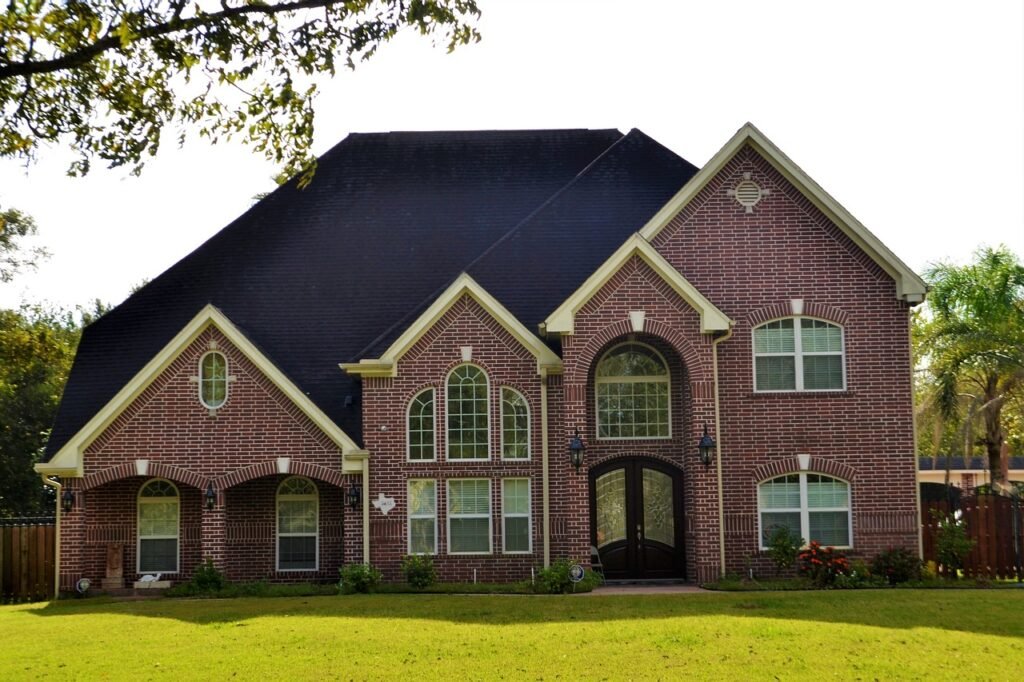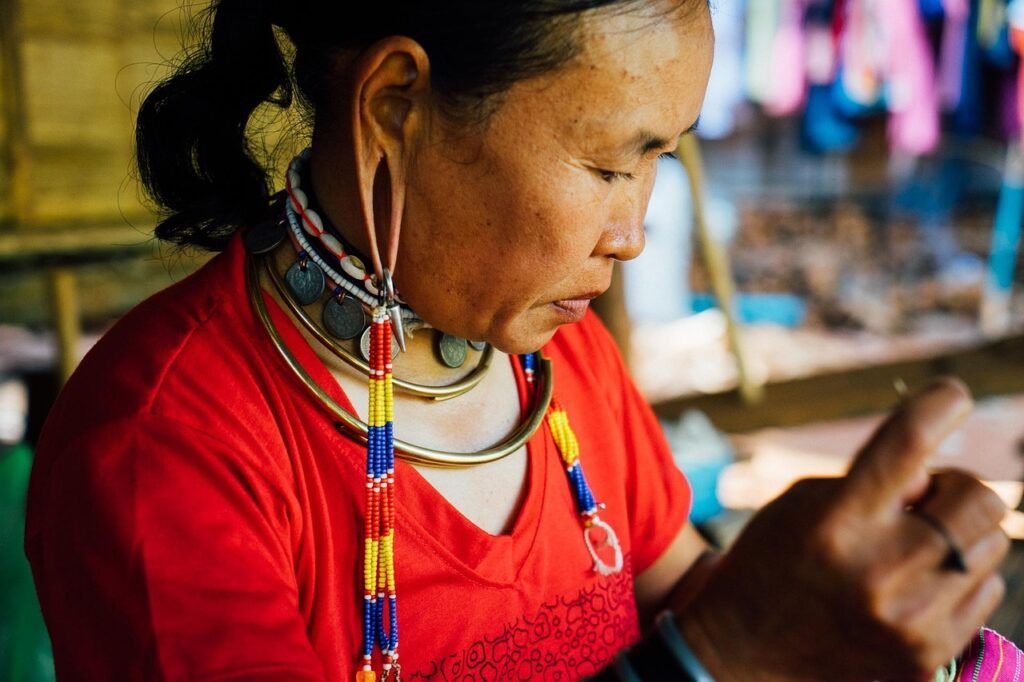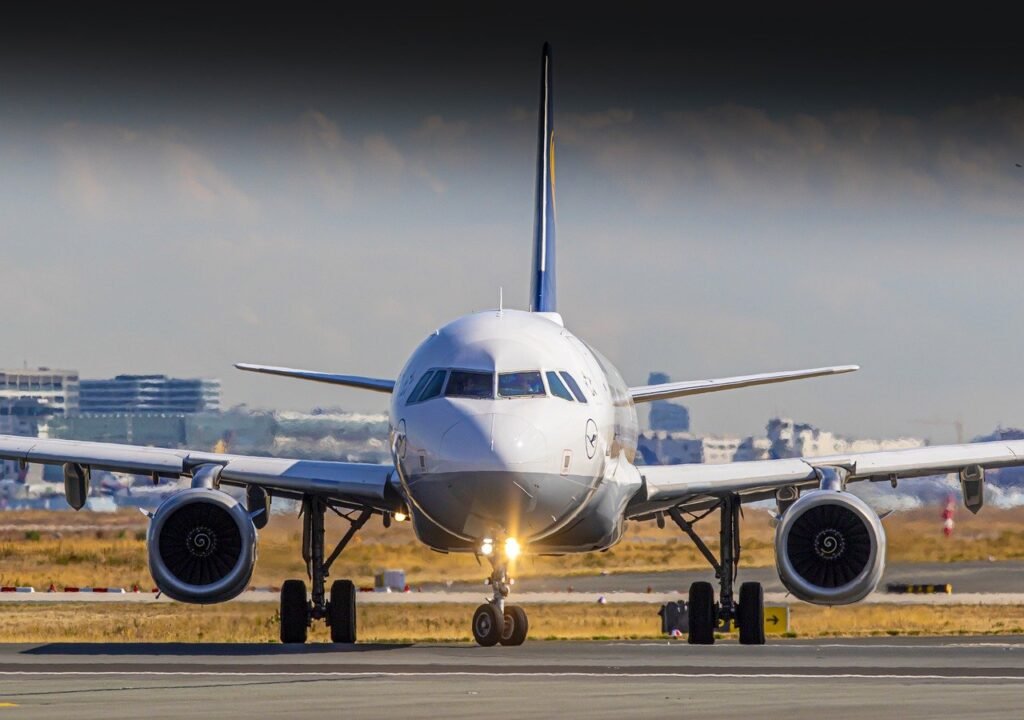
Intro
Living in Thailand as an American can be an exhilarating experience, offering a vibrant culture, beautiful landscapes, and a friendly local population.
But, amidst the excitement of moving to a new country, one of the most pressing questions for many expats is, “Is it cheap to live in Thailand?” As someone who has made the leap and now calls Thailand home, I’m here to share my insights and experiences to help you navigate the financial aspects of living in this beautiful country, alongside other essential considerations.
Is it Cheap to Live in Thailand? A Comparative Look at the Cost of Living

When evaluating the affordability of life in Thailand compared to the United States, the perspective of cost heavily leans in favor of Thailand, making it an attractive destination for Americans seeking a more cost-effective lifestyle.
In Thailand, everyday expenses such as groceries, public transportation, and utilities are markedly less than what one would typically spend in the US.
Dining out at local Thai restaurants or street food stalls offers a delicious and budget-friendly alternative to cooking at home, with meals often costing just a few dollars.
Accommodation costs vary significantly across the country. In major cities like Bangkok or tourist hotspots like Phuket, rent prices can be comparable to those in smaller US cities, though still generally lower.
On the other hand, more rural areas or less touristy cities offer housing at a fraction of the cost, presenting opportunities for substantial savings on living expenses.
It’s also worth noting that healthcare in Thailand is both affordable and of high quality, with many hospitals and clinics providing services at costs much lower than those in the US.
However, it’s crucial for expats to have health insurance to cover any unexpected medical expenses.
While the overall cost of living in Thailand presents an appealing prospect for Americans, personal lifestyle choices play a significant role in determining monthly expenses.
Luxuries and imported goods can be pricey, and a lifestyle that leans towards frequent dining at high-end restaurants, shopping for branded goods, or living in upscale accommodations can quickly escalate costs.
Nonetheless, with mindful spending and a willingness to embrace local living standards, Americans can enjoy a comfortable and financially sustainable life in Thailand.
The Pros and Cons of Living in Thailand as an American

Embracing the life of a Thailand expat as an American is filled with moments of awe and instances of challenge.
The allure of pristine beaches, an affordable lifestyle, and the warmth of the Thai people is contrasted by the hurdles of navigating a new cultural landscape.
One of the most significant advantages is the cost of living in Thailand vs US. Expenses from dining out to healthcare are substantially lower, allowing for a lifestyle that might be unattainable back home.
The Thai culture, known for its hospitality and rich traditions, offers endless opportunities for exploration and personal growth.
Whether it’s the vibrant street markets of Bangkok or the serene temples scattered across the country, there’s always something new and exciting to discover.
However, living in Thailand is not without its challenges. The language barrier is perhaps the most daunting obstacle, making even simple tasks potentially complicated and sometimes leading to feelings of isolation.
While many Thais speak English, especially in tourist areas, deeper integration into society or handling official matters often requires a grasp of the Thai language. Adjusting to the tropical climate can also be a test for some, with its intense monsoon seasons and high humidity.
Moreover, the legal aspects of living long-term in Thailand, such as obtaining the correct visas and work permits, require careful planning and understanding of Thai law.
For those looking to work in Thailand, navigating the local job market and business culture can also present its own set of challenges, particularly for those seeking employment beyond teaching English or digital nomad ventures.
In essence, while Thailand offers a captivating mix of natural beauty, cultural richness, and a lower cost of living, it also demands adaptability and patience from American expats in navigating the nuances of a new way of life.
Working in Thailand: Opportunities and Considerations

For American expatriates considering a move to Thailand, the prospect of finding work is often a top concern.
Thailand offers a variety of opportunities, particularly for those skilled in areas such as education, technology, and the burgeoning field of digital entrepreneurship.
Teaching English remains one of the most accessible paths for Americans, with numerous language schools and international institutions constantly on the lookout for native speakers.
This role not only provides a steady income but also a work permit, which is crucial for long-term residency.
Beyond education, the tourism industry presents numerous possibilities, from hotel management to dive instruction.
These positions, however, tend to require a deep understanding of both the local culture and the tourism market.
For the digitally savvy, Thailand has become a haven for remote work and entrepreneurship. Cities like Bangkok and Chiang Mai are replete with co-working spaces and a supportive network of international expatriates.
Yet, working in Thailand comes with its set of challenges. The job market can be competitive, and prioritizing local hires is common practice.
Understanding the nuances of Thai business culture is essential for success and integration into the workplace.
For those seeking employment, it’s important to research visa requirements and secure a job that provides a work permit. Without proper authorization, expatriates may find themselves in precarious legal situations.
Moreover, adapting to the local work environment requires flexibility and patience. Business operations in Thailand can differ significantly from those in the U.S., with a strong emphasis on hierarchy and respect within the workplace.
For Americans accustomed to a more direct communication style, this can necessitate an adjustment period.
In essence, while Thailand offers a wealth of opportunities for American expats willing to explore the job market, it demands a proactive approach to legal requirements, cultural adaptation, and an open-minded attitude towards the nuances of working in a foreign country.
The Best Places to Live in Thailand for an American Expat

For American expats contemplating where to settle in Thailand, the options are as diverse as the landscape itself.
Each locale offers a unique flavor of Thai life, tailored to different expat needs and preferences.
Bangkok, the capital city, pulsates with a dynamic energy, offering a cosmopolitan lifestyle complete with modern amenities, a vibrant street food scene, and an expansive expat community.
It’s an ideal choice for those seeking the thrills of urban life alongside the convenience of international schools and state-of-the-art healthcare facilities.
Chiang Mai, on the other hand, appeals to those looking for a quieter, more relaxed pace. Nestled in the northern mountains, its cooler climate, abundant nature, and rich cultural heritage make it a haven for creatives, digital nomads, and retirees.
The city is known for its laid-back vibe, numerous temples, and lively markets, offering a blend of tradition and modernity that many find irresistible.
For beach enthusiasts, Phuket and Koh Samui are the epitome of tropical paradise, with their stunning beaches, clear blue waters, and vibrant nightlife.
While the cost of living can be higher in these tourist hotspots, the trade-off comes in the form of breathtaking natural beauty and a perpetual vacation feel.
These islands also host a diverse expat community, providing a sense of camaraderie and belonging.
Lastly, Hua Hin is an emerging favorite among expats seeking a balance between beach life and accessibility.
Its proximity to Bangkok, combined with its own charming beaches, golf courses, and a more laid-back lifestyle, offers a compelling alternative for those wishing to have the best of both worlds.
Each of these destinations offers a unique slice of Thai life, allowing American expats to find a place that resonates with their personal aspirations and lifestyle preferences.
Navigating the Thai Lifestyle: Integration and Cultural Appreciation

Embracing the vibrant Thai lifestyle and culture is a pivotal step for any American expat seeking a deeper connection with their new home.
Immersing yourself in the nuances of Thai traditions, from the daily practice of removing shoes before entering a home to participating in local festivals, can significantly enrich your living experience.
While Thailand is known for its openness and hospitality, showing genuine interest and respect for its customs fosters mutual understanding and builds lasting friendships with locals.
Diving into the language is another crucial aspect of integration.
Though learning Thai may seem daunting due to its tonal nature, mastering basic phrases not only eases day-to-day interactions but also signals respect for the country’s cultural identity.
Engaging with neighbors, local business owners, and even attempting to read street signs in Thai can transform your relationship with the community from that of an outsider to an appreciated resident.
Culinary exploration is yet another avenue through which you can connect with Thai culture. The country’s food is renowned worldwide for its diversity and flavor, embodying the essence of Thai tradition and innovation.
Participating in cooking classes, exploring local markets, and sampling regional specialties are activities that allow for a deeper appreciation of Thailand’s rich culinary heritage.
Additionally, involvement in community service or local events can provide meaningful insights into the societal fabric of Thailand.
Volunteering at local NGOs, attending cultural workshops, or participating in environmental clean-ups are ways to contribute positively to your host country while gaining a greater understanding of the challenges and joys faced by the communities within it.
In essence, successful integration into Thai society hinges on a respectful and open-minded approach to its diverse culture and traditions.
Engaging actively with the local lifestyle not only enhances your experience as an expat but also paves the way for a more inclusive and enriching life in Thailand.
Why SkyScanner is Your Go-To for Budget-Friendly Flights to Thailand

For Americans considering the journey to Thailand, either for relocation or frequent visits, keeping travel costs manageable is crucial.
This is precisely where SkyScanner becomes an indispensable tool.
Esteemed for its user-friendly interface and comprehensive coverage, SkyScanner serves as a bridge between travelers and the most economical flight options available.
The platform excels by aggregating data from a plethora of airlines and travel agencies, ensuring that users have access to a wide array of choices that cater to their specific needs and budget constraints.
What sets SkyScanner apart is its adaptability. Users can exploit the feature that allows searches for flights over an entire month, highlighting the cheapest days to fly.
This flexibility is particularly beneficial for those with adjustable travel plans, making it easier to align their move or visit with the most cost-effective flight options.
Additionally, SkyScanner’s alert system notifies users of price drops, a function that can lead to significant savings for proactive planners.
Beyond just serving as a comparison tool, SkyScanner provides insightful tips and recommendations, guiding users through the intricacies of booking the best flights.
Whether it’s advising on the ideal time to book for peak seasons or navigating last-minute deals, SkyScanner arms travelers with the knowledge to make informed decisions.
For Americans embarking on the Thai expat journey or those planning multiple trips back and forth, leveraging SkyScanner’s capabilities can demystify the process of finding budget-friendly flights, making the transition to Thailand not just a dream, but a financially attainable reality.
Final Thoughts on Living in Thailand as an American

Transitioning to life in Thailand presents an incredible journey filled with personal growth, adventure, and the opportunity to immerse oneself in a rich cultural tapestry.
The experiences awaiting American expats are as diverse as Thailand’s landscapes, offering a unique blend of modernity and tradition, affordability, and the warmth of Thai hospitality.
Embracing this new lifestyle requires adaptability, an open mind, and a willingness to dive deep into the cultural nuances that define Thailand.
Financial considerations play a crucial role in ensuring a smooth transition, with the cost of living offering a favorable comparison to the US, allowing for a quality of life that is both enriching and accessible.
However, personal spending habits and lifestyle choices significantly impact one’s financial well-being, underscoring the importance of mindful budgeting and embracing local living standards.
The professional landscape in Thailand also offers a myriad of opportunities, from teaching English to embracing the digital nomad lifestyle, provided one navigates the legalities and cultural expectations with diligence and respect.
Integrating into Thai society goes beyond simply relocating; it involves a genuine effort to connect with the local community, understand its traditions, and contribute positively to your new home.
As you embark on this journey, remember that the transition to living in Thailand is not just about overcoming challenges but also about seizing the opportunity to experience life from a fresh perspective.
The beauty of Thailand, combined with its cultural depth and welcoming community, provides a backdrop for an unforgettable expat experience.
With careful planning, a spirit of adventure, and an appreciation for the new and unknown, living in Thailand as an American can transform from a mere possibility into a rewarding reality.